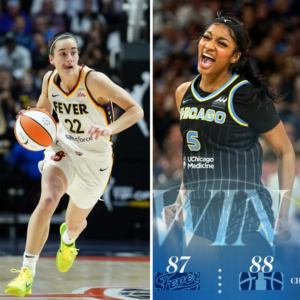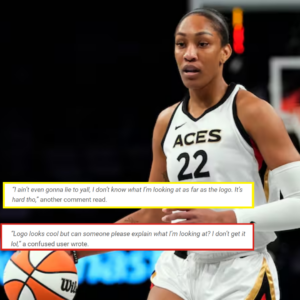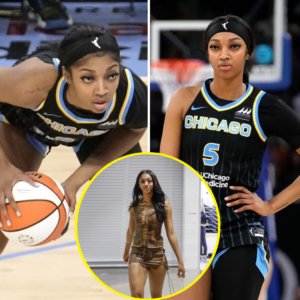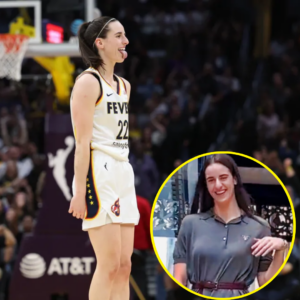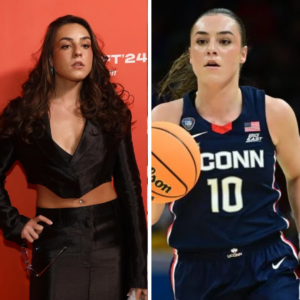In early April, during the N.C.A.A. Final Four, ESPN’s “SportsCenter” host Scott Van Pelt asked Diana Taurasi, the legendary guard for the Phoenix Mercury, what was in store for this year’s highly anticipated rookie class when it reached the W.N.B.A. “Reality is coming,” Taurasi said. “You look superhuman playing against eighteen-year-olds, but you’re going to come play with some grown women that have been playing professional basketball for a long time.” Greatness would translate, she added, but there would be a “transition period.” Rookies might have to give themselves “some grace.”
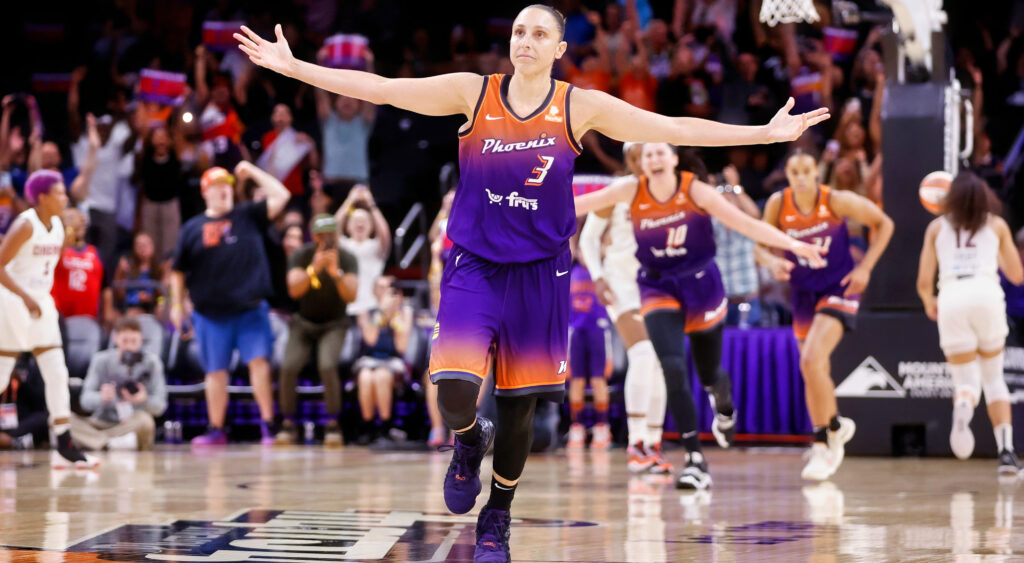
Taurasi’s remarks were quickly clipped and circulated widely. They did not go over well. Many, perhaps most, people interpreted “reality is coming” as a swipe aimed at Caitlin Clark, who would soon be taken with the top pick in the draft, and who was fast becoming one of the most famous athletes in the country. Why, they wondered, didn’t Taurasi appreciate Clark’s prowess and all the new attention—and money—that she was bringing in? A few weeks later, Taurasi was asked about her comments, and given an opportunity to walk them back. She gave a half-rueful smile. “The new fans are really sensitive these days,” she said. “You can’t say anything.” Every level is an adjustment, she explained. “I don’t think I said anything that wasn’t factually correct.”
Taurasi, the daughter of Argentinean immigrants, was the top pick twenty years ago. She had won three national championships with the University of Connecticut and had twice been chosen as the national player of the year. In her first season in the W.N.B.A., she averaged seventeen points and was named the Rookie of the Year. She has won three W.N.B.A. championships, five Olympic gold medals, and five scoring titles, and has been selected for the All-W.N.B.A. first team ten times, making the second team another four times. She has scored nearly three thousand more points than any other player in W.N.B.A. history, and is widely regarded as the best player that the league has ever seen.
It isn’t just Taurasi’s smoothness on the court, or her strength, or her shooting ability, that has made this possible. She is also tough and brash—even a little mean. She’s usually among the league leaders in technical fouls. Kobe Bryant used to call her the White Mamba, and she has a charisma and an intensity like his, though only a fraction of his celebrity. After losing the 2021 Finals, she reportedly broke a door in the visiting team’s locker room. In a particularly heated moment with a rival star, Taurasi gave her a kiss on the cheek. “Take that with you, baby,” she whispered. (The referee tossed both players from the game.) When Kelsey Plum was a rookie, not long after breaking the N.C.A.A. scoring record, she found herself guarding Taurasi, and thought she’d show Taurasi what she could do. Instead, Taurasi got her in the gut and sent her sprawling. Plum lay on the floor, half in pain, half laughing, having just been hit by reality.
 Taurasi was a rookie during the W.N.B.A.’s eighth season. Three of the league’s sixteen teams had recently folded; it was a period of flux and contraction. Viewership was dropping. As the first over-all pick, Taurasi made slightly more than forty thousand dollars a year. Soon after she was drafted, she was put at the center of an ad campaign designed around players’ femininity. “They had me put my hair down, lipstick, I had a fucking halter top on,” Taurasi told ESPN for a documentary on the history of basketball. “I never felt so bad in my life.”
Taurasi was a rookie during the W.N.B.A.’s eighth season. Three of the league’s sixteen teams had recently folded; it was a period of flux and contraction. Viewership was dropping. As the first over-all pick, Taurasi made slightly more than forty thousand dollars a year. Soon after she was drafted, she was put at the center of an ad campaign designed around players’ femininity. “They had me put my hair down, lipstick, I had a fucking halter top on,” Taurasi told ESPN for a documentary on the history of basketball. “I never felt so bad in my life.”
The league struggled to market Taurasi, who is gay, just as they struggled to market many of the league’s Black stars. “I don’t know if there’s a bigger marketing ball that’s been dropped than us not talking about Diana Taurasi nonstop,” the former player and longtime ESPN analyst Rebecca Lobo told Sports Illustrated, in 2021. “Her name should have been like Serena Williams.” Instead, Taurasi made her money in Russia, where her salary was reportedly around one and a half million U.S. dollars. In 2015, she made headlines for accepting a bonus from her Russian team—rumored to be more than two hundred thousand dollars—not to play in the W.N.B.A. that year. Her salary from the Phoenix Mercury, where she had just won a championship and been named the Finals M.V.P., was around a hundred thousand dollars.
But things were starting to change in and around the league. The level of play kept rising. Players took marketing matters into their own hands, building followings on social media and posting their pregame fits on TikTok. They built a brand for the W.N.B.A., with a clear and consistent orientation to social justice. They projected a kind of unapologetic authenticity. In the early days of the pandemic, Taurasi was joined by another W.N.B.A. veteran, Sue Bird, and Bird’s partner, the soccer superstar Megan Rapinoe, for a four-hour wine-powered Instagram Live session, during which they laughed and talked a lot of shit. It was a hit.
News
Arrogant Angel Reese!!! Chicago Sky “Taunted” Fan Caitlin Clark With Viral Post.
The Chicago Sky have been listening to the noise from fans and haters alike this season. On Sunday afternoon, the Sky mounted a comeback win over Caitlin Clark and the Indiana Fever — marking their first win of the regular-season…
[PHOTO] – Fans Simultaneously Have “Confusing” Questions About The New Nike Logo Of Las Vegas Aces Superstar A’ja Wilson
Fans are unsure what to make of A’ja Wilson’s new Nike logo following its unveiling. The sportswear company announced that Wilson would be getting her own signature sneakers in 2025 before the start of the current season, which will put…
Angel Reese Always Makes The Online Community “Gasp” With Her pre-match Outfits, And This Time Is No Exception – The Image Of Her Wearing The Outfit Makes The Internet “Crazy”
Angel Reese Always Makes The Online Community “Gasp” With Her pre-match Outfits, And This Time Is No Exception – The Image Of Her Wearing The Outfit Makes The Internet “Crazy” Angel Reese did not come to play around despite having…
[VIDEO] – Caitlin Clark Showed Up To Tonight’s Clash vs. Angel Reese With A Dress That Was So Short, She Needed Her Hand To Keep It From Showing Too Much
Caitlin Clark’s pregame outfit was a bit shorter than we expected it to be ahead of her matchup vs. Angel Reese and the Chicago Sky on Sunday afternoon. The Indiana Fever rookie is playing her third professional game against her…
[VIDEO] – Seattle Storm Rookie Nika Muhl Turned Heads With Her Eye-Popping Pregame Outfit Before Sunday’s Game
Former UConn guard Nika Muhl went viral after her defensive performance against Caitlin Clark during the 2023 NCAA Tournament. She has quickly made a name for herself in the WNBA despite not playing very many minutes. Seattle Storm rookie Nika…
“Everyone Is Watching Right Now” – The Stadium Was Filled With spectators to watch the two supposed eternal rivals, Reese and Clark
The budding stars of the WNBA, Caitlin Clark, and Angel Reese, met for a nail-biting game on Sunday. The thrilling game finished with the latter having the last laugh, but there was a positive note for both the players, their…
End of content
No more pages to load
